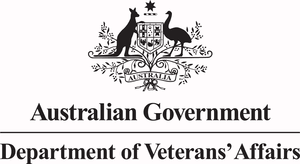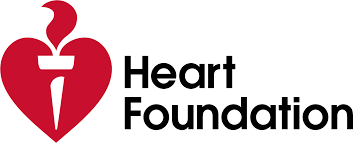Immunisations
What is an Immunisation?
An immunisation, or vaccination, is an injection or oral dose of an agent that resembles a disease-causing micro-organism. It is often made from a weakened or killed form of the pathogen and it stimulates the immune system to produce antibodies against the pathogen and disease it causes. These antibodies help to protect the body from the disease in the future. Immunisations are safe and effective in preventing infectious diseases and are essential to public health.
Who can have Immunisations?
Immunisations are suitable for individuals of all ages, including babies, children, teenagers, and younger and older adults. It is recommended that children receive a series of immunisations starting from birth and through childhood to protect them against serious diseases, including measles, mumps, rubella, and chickenpox. Adults are also recommended to have immunisation against certain diseases, such as influenza and pneumonia.
Some individuals, including those with weakened immune systems or allergies to vaccine ingredients, may not be recommended for immunisations. It is important to consult with your doctor before getting vaccinated if you have any concerns.
What are the Benefits of Immunisations?
Immunisations offer numerous benefits, including:
- Prevention of disease: Immunisations are highly effective in preventing the spread of infectious diseases. They help to build herd immunity, which means that even those who are not vaccinated are protected because the disease is less likely to spread.
- Protection of vulnerable populations: Immunisations protect those at a higher risk of severe disease or complications, such as infants, the elderly, and those with weakened immune systems.
- Cost-effective: Immunisations are cost-effective in preventing disease and reducing healthcare costs associated with treating infectious diseases.
- Saves lives: Immunisations have saved millions of lives worldwide, particularly in developing countries where diseases such as measles and polio are still prevalent.
What are the Types of Immunisations?
There are various types of Immunisations available, including:
- Inactivated vaccines: These vaccines contain viruses or bacteria that have been killed. They are usually given as an injection.
- Live-attenuated vaccines: These vaccines contain weakened viruses or bacteria and are usually given as a nasal spray or oral dose.
- Recombinant vaccines: These vaccines contain only a small part of the pathogen. They are made through recombinant DNA technology to stimulate an immune response.
- Conjugate vaccines: These vaccines protect against bacterial diseases by attaching a weak antigen to a strong antigen to stimulate an immune response.
Children's Immunisations
Children's immunisations protect them against serious diseases, including measles, mumps, rubella, chickenpox, and polio. Immunisations are recommended for all children starting from birth and should be given according to the recommended immunisation schedule.
Children's immunisations vary depending on the age and health of the child. However, the most commonly recommended children's immunisations are:
- Measles, mumps, and rubella (MMR): This immunisation protects against measles, mumps, and rubella, which are highly contagious viral infections that can cause serious complications.
- Diphtheria, tetanus, and pertussis (DTaP): This immunisation protects against diphtheria, tetanus, and pertussis (whooping cough), bacterial infections that can cause severe illness and complications.
- Hepatitis B: This immunisation protects against hepatitis B, a viral infection that can cause liver damage and other complications.
- Polio: This immunisation protects against polio, a viral infection that can cause paralysis and other serious complications.
- Haemophilus influenzae type b (Hib): This immunisation protects against Hib, a bacterial infection that can cause serious illnesses such as meningitis, pneumonia, and blood infections.
- Pneumococcal disease: This immunisation protects against pneumococcal disease, a bacterial infection that can cause pneumonia, meningitis, and blood infections.
- Rotavirus: This immunisation protects against rotavirus, a viral infection that can cause severe diarrhea and dehydration in young children.
It is important to follow the recommended immunisation schedule and to ensure that your child is up to date on all necessary immunisations to ensure maximum protection against preventable diseases. If you have any concerns or questions about children's immunisations, consult your child's doctor or an immunisation provider.
Flu Immunisations
The flu vaccine is a vaccine that helps to protect against seasonal influenza, which is a highly contagious respiratory illness that can cause severe illness, complications and even death. The flu vaccine contains either inactivated (killed) virus or a live attenuated (weakened) virus, depending on the type of vaccine.
Flu immunisations are recommended for all individuals six months and older. Flu immunisations are especially important for those at a higher risk of severe disease or complications, including young children, the elderly, pregnant women, and those with underlying medical conditions.
COVID-19 Immunisations
COVID-19 immunisations were developed during the pandemic of 2020-2022 and are generally considered safe and effective in preventing severe illness, hospitalisation, and death from COVID-19. There are currently three main types of COVID-19 Immunisations:
- mRNA vaccines: These vaccines, including the Pfizer-BioNTech and Moderna vaccines, use a small piece of genetic material from the virus to trigger an immune response.
- Vector vaccines: These vaccines, including the AstraZeneca and Johnson & Johnson vaccines, use a weakened virus to deliver a piece of the COVID-19 virus to the body to stimulate an immune response.
- Protein subunit vaccines: These vaccines, including the Novavax vaccine, use a piece of the COVID-19 virus to stimulate an immune response.
All COVID-19 Immunisations require two doses, except for the Johnson & Johnson vaccine, which requires only one dose. Immunisations are safe for most people, but individuals with severe allergies to vaccine ingredients or a history of severe allergic reactions should consult their doctor before getting vaccinated.
We no longer provide COVID-19 vaccinations at our practice but can advise where these can be obtained.
Travel Immunisations
Travel immunisations, or travel health immunisations, are recommended for individuals travelling to areas with a higher risk of infectious diseases. These Immunisations protect against diseases such as yellow fever, typhoid fever, and hepatitis A and B.
The most common travel immunisations vary depending on the destination and the individual's health and immunisation history. However, here are some of the most commonly recommended travel immunisations:
- Hepatitis A
- Hepatitis B
- Typhoid fever
- Yellow fever
- Rabies
- Meningococcal disease
Consult with your doctor or a travel health specialist before travelling to ensure that you have the necessary immunisations and are aware of any other health precautions you should take during your trip.
Immunisations Procedure
The procedure for getting vaccinated may vary depending on the type of vaccine and the immunisation provider. However, here are some general steps that are typically involved in the immunisation procedure:
- Check eligibility: Check whether you are eligible for the vaccine based on age, health, and other relevant factors. For example, some vaccines may not be recommended for individuals with certain medical conditions.
- Schedule an appointment: Contact an immunisation provider to schedule an appointment for your vaccine. Some providers may offer walk-in immunisations, but it is recommended to make an appointment to ensure availability.
- Complete necessary forms: Fill out the necessary paperwork, including medical history and consent forms.
- Receive the vaccine: A healthcare provider will administer the vaccine, usually through an injection or nasal spray. Follow the provider's instructions, such as wearing a mask, social distancing, and waiting for a certain amount of time after the immunisation.
- Keep track of your immunisation record: Keep a record of your immunisation and stay updated on your recommended immunisation schedule. You can do this by keeping a copy of your immunisation record or registering on the government's immunisation register. Immunisation history is usually recorded on My Health Record.
Are Vaccines Effective?
In general, Immunisations are highly effective in preventing disease. For example, the measles vaccine is 97% effective in preventing measles when two doses are given according to the recommended schedule. While less effective than some other vaccines, the flu vaccine still offers significant protection against the flu and can reduce the risk of hospitalisation and death.
In addition to preventing disease, immunisations also help build herd immunity, which means that even those not vaccinated are protected because the disease is less likely to spread. This is especially important for individuals who cannot receive immunisations for medical reasons, such as those with weakened immune systems.
No vaccine is 100% effective, and breakthrough cases can occur. Breakthrough cases are when an individual vaccinated still gets the disease. While breakthrough cases can happen, they are usually less severe and less likely to result in hospitalisation or death.
Are Vaccines Safe?
Vaccines undergo extensive testing and evaluation by regulatory authorities, including the Therapeutic Goods Administration (TGA) in Australia, before they are approved for use. This process ensures that vaccines are safe and effective for their intended use.
In addition to regulatory approval, vaccines are also continuously monitored for safety and effectiveness through post-market surveillance systems. This monitoring allows for the early detection and investigation of potential safety concerns.
Immunisations Risks
Like all medications, vaccines can have side effects. However, most vaccine side effects, such as soreness or redness at the injection site or a low-grade fever, are mild and temporary. Serious side effects from vaccines are rare.
The risks associated with not getting vaccinated are far greater than those associated with getting vaccinated. Not getting vaccinated puts individuals at risk of serious complications and even death from preventable diseases and contributes to the spread of infectious diseases in the community.
Individuals with a history of severe allergic reactions or other medical conditions should consult their doctor before immunisation. In some cases, certain vaccines may not be recommended for individuals with certain medical conditions.
What if Immunisations are Delayed?
Delaying immunisations can increase the risk of contracting preventable diseases and contribute to the spread of disease in the community. Immunisations are recommended at certain ages and according to a schedule to ensure maximum protection against infectious diseases.
If immunisation is delayed, however, catching up on missed doses as soon as possible is advisable. Our nurses can advise of a catch-up schedule and help you to work through this.
Vaccines can still be effective even if the recommended schedule is not followed precisely, but vaccinating according to the recommended schedule is the best way to ensure maximum protection against preventable diseases.
Shops 13-15 Currumbin Fair Shopping Centre, 15-23 Bienvenue Drive Currumbin Waters, Qld, 4223
About
SERVICES
CLINICS
CONTACT








